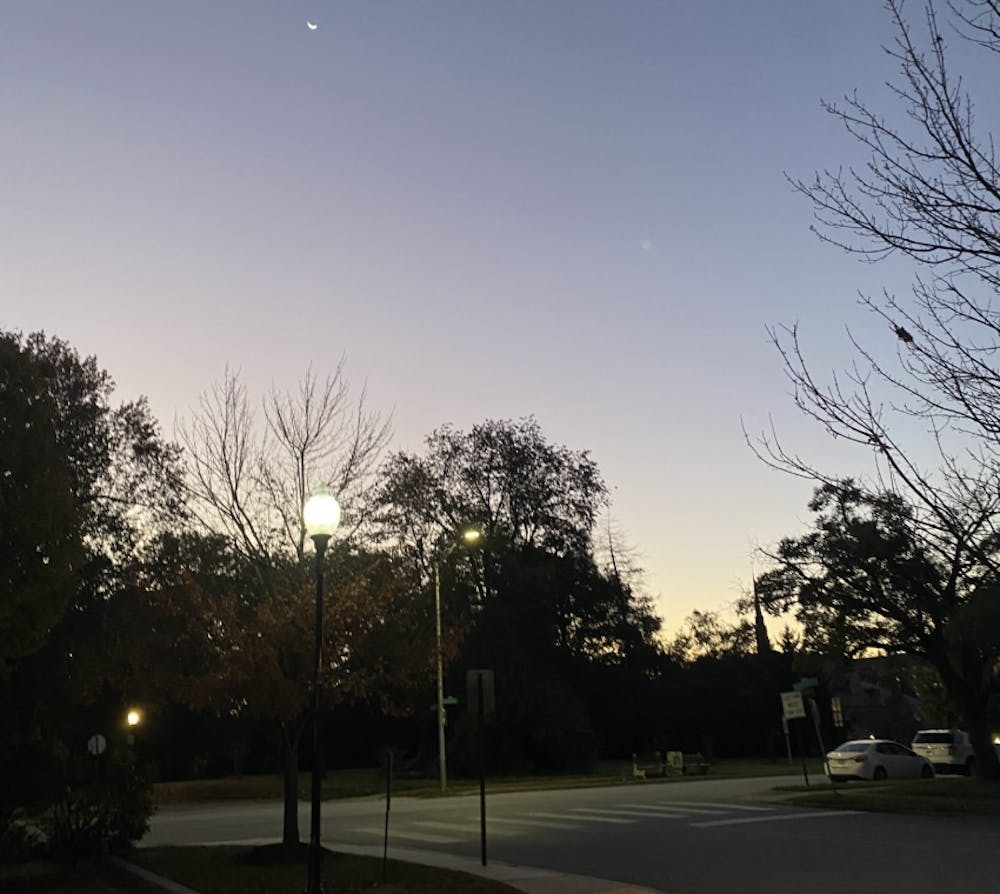
While I like to consider myself an honest person, I’ve realized lately that I’m often dishonest with myself. If a near-stranger were to ask me about my fears or my childhood, I’d hardly hesitate before answering with the truth. I’ve never been one to fear saying too much. The trick, that I’ve noticed recently, is that I’ve left a backdoor open. I consider myself honest so long as I believe the truth of what I’m saying, but there remains a subtle caveat: my own thoughts are not always reflective of what I mean. Let me explain.
I tell myself I love to write, and I do. I also tell myself that I would write more if only I had the time and, here I am over fall break, doing nearly everything but the writing I’ve supposedly been wanting to do. So I sit at my table, I tell myself to make a plan to write, to schedule it all out and my hand does not move toward my pen.
Ringing through my ears is the silence of denial. In sticking so steadfastly to this old truth that I love to write, I’ve stopped allowing myself all the room to negotiate with how that might change by the day. Rather than tapping into how I’m really feeling, as one might feel for the pull of hunger or thirst, I’ve simply told myself the way it is: you want to be a writer, so you love to write; so, at every instance, you must love it, otherwise what will you be?
Ancient pillars of self-truth, I’ve found, run the danger of becoming straw men in me. In rhetoric, the straw man is a false promise, an intentionally miswrought proposition that is mounted on the stand when someone has nothing better to say. Rather than admit defeat, the opponent must face the straw man. No matter that they are fighting thin air. Rather than ask myself why I don’t want to write right now, I force myself to stay seated and stare at my screen, willing the desire to find me.
Call it a heuristic or a Johari window, but I’ve stuck perhaps too strongly to the idea that I know who I am. Growing up, it felt like the biggest compliment to be the child that knew what she wanted from life, the student who was always working toward something. I was a little morally scrupulous at a young age and always wanted to ensure that I was becoming the person I’d set out to be. I’d ask myself, before any action, if what I was about to do really aligned with the values I wanted to cultivate as a person. To do that required that I know the values I wanted to one day possess, so I set them out as pillars before I hit double-digits: loyalty, honesty, empathy, kindness, humility. I worked so hard to act only in the ways that would set me down the path of the person I wanted to become. From this, I wanted, more than anything, to act with intention. To retain autonomy in everything that I did. Somewhere along the way, this fierce want for will tumbled in the opposite direction.
I think the danger of certainty is that it can block off the nuanced present. Shouting to myself that I love to write muffles my ability to understand how I actually feel; rather than noticing the burnout, the growing headache, my scarce nutrition, I demand that I perform the person I believe I should be. This is not unique to writing. There are so many beliefs – I’m learning, as I’m learning to learn this – that have gone unquestioned for too long. And, oftentimes, the beliefs themselves aren’t the problem but my misplaced certainty in them. Too quickly, knowing who I am has morphed into knowing who I think I should be, which, unchecked, gains the power to wall off the person I’m becoming.
Opening my senses to my present, I am still faced with the knowledge that I love to write. But what I want to do isn’t map out a storyboard for some novel I conceptualized months ago. I want to play music loudly through my headphones and draft poetry. I’d rather work on a new story today than an old one.
These pillars of self-concept are not without importance and certainty is not the enemy. But when heuristics cut in the line of feeling, I try now to take notice. There is no pillar so worth defending that I lose myself in the process, and there will be no finding myself if I don’t get a little lost along the way.
Kaitlin Tan is a senior from Manila, Philippines, majoring in Writing Seminars and Cognitive Science. She is the Voices Editor for The News-Letter. In her column, she tries to parse through the everyday static for something to hold onto.





